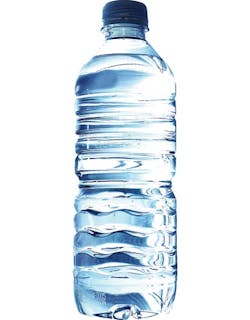IBWA Argues Bottled Water Industry Is The ‘Face of Positive Change’ For Earth Day 2013
The International Bottled Water Association (IBWA) recently released an announcement highlighting the concerns the bottled water industry has about the environment and the actions it's taking to protect it. Among those actions are a substantial reduction in plastic use and significant increases in recycling rates which make bottled water packaging a ‘face of positive change’ for Earth Day 2013, according to IBWA.
“In keeping with this year’s Earth Day theme of ‘Face of Climate Change,’ IBWA demonstrates a ‘Face of Positive Change’ through its numerous environmental impact-reduction efforts, which are built on a foundation of solid science and smart decisions,” said Chris Hogan, vice president of communications for IBWA, in a prepared statement. “The bottled water industry is taking a broad-based approach to reducing its environmental footprint.”
Bottled water drinkers themselves are also the ‘face of positive change,’ as a newly-released study from the National Association for PET Container Resources (NAPCOR) shows PET plastic bottled water containers are the single most recycled item in nationwide curbside collection programs. In addition, the national recycling rate for single-serve PET plastic bottled water containers is now 38.6 percent; a figure that has more than doubled in the last seven years, according to NAPCOR.
The bottled water industry is a strong supporter of the environment and natural resources, according to the IBWA. In fact, bottled water’s environmental footprint is the lowest of any packaged beverage according to a life cycle assessment conducting by Quantis in 2010. The bottled water industry’s dedication to protecting the environment and natural resources is also demonstrated by:
* Using less PET plastic to make single-serve bottled water containers. Data from the Beverage Marketing Corp. (BMC) shows that between 2000 and 2011, the average weight of a 16.9-ounce (half-liter) PET plastic bottled water container declined 47.8 percent. This has resulted in a savings of 3.3 billion pounds of PET resin since 2000.
* Increasing the use of recycled PET (rPET) to make bottled water containers. While bottled water is just one of thousands of consumer items packaged in plastic, some bottled water companies already use bottles made from 100 percent rPET. NAPCOR states that 1.5 billion pounds of PET were recycled in 2010, and producing new products from rPET uses two-thirds less energy than what is required to make products from raw virgin materials. It also reduces greenhouse gas emissions.
* Reinforcing the importance of recycling. The bottled water industry supports strong community recycling programs. All bottled water containers are 100 percent recyclable, and of all the plastics produced in the United States, PET plastic bottled water packaging makes up only 0.91 percent; less than one percent. And, EPA figures demonstrate that plastic water bottles make up less than one-third of one percent of the U.S. waste stream. 3- and 5-gallon plastic bottled water containers are reused between 30-50 times before being recycled.
“PET can be recycled multiple times and virtually all recycling programs in the United States accept PET containers,” said Hogan. “rPET can be made into new bottles or items such as plastic lumber for outdoor decking, playground equipment, carpeting, clothing and car parts.”
To encourage a comprehensive approach to effective recycling, IBWA developed its Material Recovery Program (MRP), a collaborative joint venture between businesses and government. The MRP supports the development of new, comprehensive solutions to help manage solid waste in U.S. communities by having all consumer product companies, including bottled water, work together with state and local governments to improve recycling and waste education and collection efforts for all packaged goods.
IBWA is also a sponsor of the Curbside Value Partnership (CVP), a not-for-profit organization formed to help communities grow and sustain their curbside recycling programs. CVP helps communities increase recycling participation and increase the tonnage collected in their programs, and helps them measure this growth in order to make better decisions.
